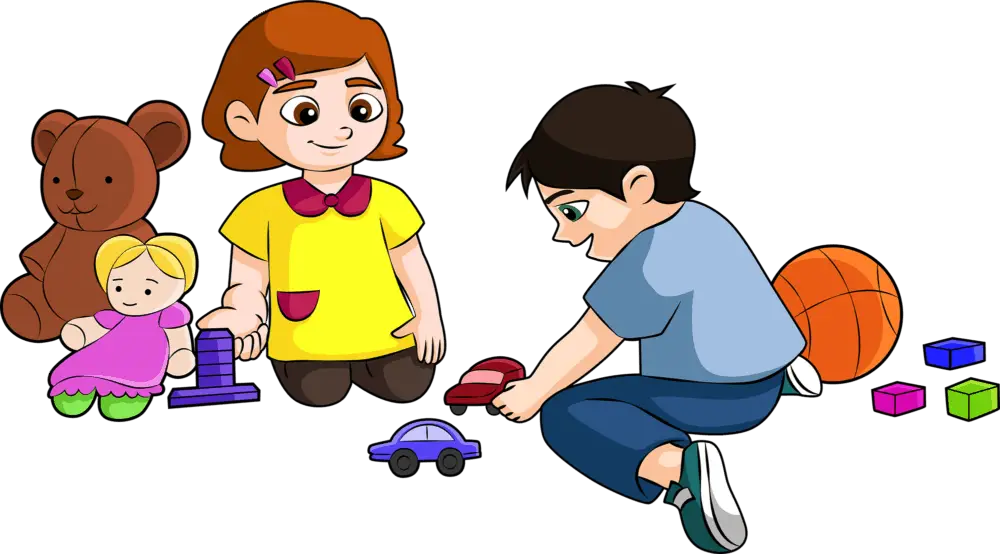If you have a child with ADHD who has expressed interest in martial arts, you may be wondering whether or not it’s a good idea to let them join. Is karate actually good for ADHD or will it create new challenges your child may not be ready for? Well, here’s what I think.
Karate is a fantastic activity to help with the challenges associated with ADHD. It can strengthen neural networks allowing your child to focus more easily, provide an opportunity for them to develop socially, and teach self-control. Further, on a physical level it can develop coordination.
If you’d like to know all the ways karate can help with your child’s ADHD, this is for you. I’ll break down what exactly makes martial arts better for ADHD than other sports, then we’ll discover all the benefits your child may receive from its practice. Self improvement all starts here, so let’s get to it!
Contents
Why Karate Is Different Than Other Sports for Kids with ADHD
Karate is particularly good for helping children with ADHD for a number of reasons that aren’t shared by all other sports. Though we could probably write a list a mile long, here are some of the benefits your child can get out of karate that they may not always get from traditional sports:
Karate isn’t completely a team sport but still involves cooperation.
First, it needs to be admitted that there is even a team aspect to Karate in competition and even in casual training. There are team elements in every class from group drills, partner training, and even the comradere of the class makeup itself. Many times those children training in the same class will begin lasting friendships from those connections.
With the competition side of Karate, you will find a definite team aspect even though you may have required solo training each day. There is a good mix though of group based cooperation and even competition to help with learning social and relationship skills.
While strictly speaking karate is not a team sport, it requires cooperation in many ways. However, this cooperation is in smaller groups than traditional team sports, giving the child a chance to work with others without overwhelming them.
This leads to a much more personal road to proficiency and individual attention that many kids with ADHD diagnosis need. It allows many kids that many not do well in a team only scenario to participate and get just enough of the collaboration to help them grow and succeed. If you would like a good interactive workbook that some Karate instructors use with their students check out this student edition here on Amazon.
Progress is marked individually, not in groups.

This goes hand in hand with the above benefit. Everyone gets to learn at their own rate and doesn’t have to measure themselves against the rest of the class. This is particularly important because children–and even adults–with ADHD oftentimes struggle with feeling like they’re behind when they compare themselves to the rest of their peers.
In other sports, however, children run the risk of being labelled a “benchwarmer” or the implication that they’re not an important member of the team. In Karate the personal development can help to eliminate this problem. Karate is notoriously a personal journey in which the student is only in competition with him or herself where progress is concerned.
How is this different than in a group context? It is most explicitly seen in the belt ranking system. There is nothing like it in other sports and this helps many shy, non-athletic, or overactive children with problems paying attention to progress at their own pace. This is the beauty of the system.
Karate is notorious for not only helping individuals reach their personal potential, but also for helping kids that have issues with group situations to excel.
Karate focuses on discipline and respect in every aspect of life.
One of the biggest challenges faced by children with ADHD, is that they struggle to develop discipline. This is why they can be extraordinarily capable but still ostensibly fail at tasks such as homework. This is where Karate comes in.
How would Karate discipline help a child change behavior and deal with the stress of this sort of disability? It teaches fortitude, the ability of an individual to not go easy on themselves. It instructs in honor, which points to valuing truth and a moral code. These help kids develop the self control that then leads to treating others with respect.
Martial arts aren’t just about developing physically, but disciplining the mind as well. The lessons children learn about discipline and respect can be applied in almost every life decision. To learn more about how karate can help your child with discipline, you might like to read this other article, by my husband who has taught martial arts for decades.
How Karate Improves Physical, Cognitive, and Social Health
Karate is a dynamic sport and develops its practitioners on multiple levels. Some of its benefits are obvious–like the fact that it will improve physical health–while others are more subtle. Either way we present you with the key benefits your child will receive from karate on a physical, cognitive and social level.
There are also activities that you can do right in your own home where the environment is familiar and safe. My husband does online Karate classes for kids all over the U.S. and around the world. Check out all the info on the current term at this link here. If you are interested and it is in the middle of a Karate term, he will be happy to prorate the already inexpensive classes for you.
The Physical Benefits of Karate
Perhaps the easiest to see benefits are those that are physical. The physical benefits that directly impact ADHD are as follows:
- Improved Coordination: On a physical level, children with ADHD tend to struggle with fine motor skills and coordination. There is evidence that the activities children engage in during karate practice can increase the connectivity of neural networks and lead to marked improvements in their coordination.
- This is likely because karate moves require balance and careful movement as well as conscious attention to the body and its posture.
- Improved Balance: Along with coordination issues, kids with ADHD can often struggle with balance. Because of the poses required to learn karate, children should see a marked improvement in these skills. This can translate to a much better performance in classes like PE, where kids with ADHD sometimes struggle.
- Better Breathing: Breathing techniques are great for managing stress and learning how to slow down and take things one at a time. Fortunately breathing practices are a major part of karate and other martial arts.
Karate’s Cognitive Benefits
While not all of the cognitive benefits of karate are known, many have been studied and are great for ADHD. They include:
- Improved Focus: The strengthening of neural connections as well as the attention to detail required to learn various karate moves makes it a great medium to increase a child’s focus.
- Improved decision making: Studies suggest that physical activity like that of karate, started at a young age can actually have far reaching cognitive effects such as better decision making abilities as adults. According to one study, this physical activity can improve “neural activities, such as perception, stimulus discrimination, decision making.”
- This is likely due to the way in which physical activity can influence the development of the frontal cortex–or the part of the brain that governs executive functioning.
- Stimulus discrimination: Struggling to deal with sever stimuli at once is one of the key markers of ADHD.Fortuantely the aforementioned study also suggests physical activity can aid in dealing with stimulus discrimation.
- This is a major aspect of sparring or light contact practice in karate. Children can improve their ability to decide what stimuli is most important in the moment and deal with it first.
Understanding the Social Benefits of Karate for ADHD

- Higher self esteem: One of the biggest emotional struggles for children with ADHD tends to be developing a good self esteem. As your child achieves greater degrees of individual success, their sense of accomplishment will guide their self esteem.
- Greater willingness to learn: Respect towards the karate instructor is vital for success. This is stressed in almost every material art. This fact can carry over to your child’s performance in school.
- Emphasis on teamwork: Other than in sparring sessions and tournaments, when people work together in martial arts exercises they aren’t so much focused on beating each other, but on helping each other improve.
- Children with ADHD often have difficulty completing tasks that involve working with other children. These fun exercises are a great way to introduce them to the concept of teamwork in a way that they will enjoy.
What About Other Martial Arts?
What if your child wants to practice a martial art, but there aren’t as interested in karate. Do practices like taekwondo come with the same benefits as karate for people with ADHD?
The answer is yes, however there are some caveats.
For adults and teens Karate is not only a well rounded self defense system, competition art, and physical activity. It is also a great avenue for self improvement. It is a complete solution for older sufferers with this disorder.
For children, Karate is a great first martial art because it is more focused on the exercise and practice rather than the actual fighting itself. Though this will depend quite a bit on the instructor teaching the classes.
To some people this is a negative that makes it less worthwhile, but we think this is actually good for children who are simply trying to increase their physical, cognitive and social abilities. To learn more about the various martial arts, check out this article here.
The main focus in karate is on personal improvement and perseverance. Just about everything you want to improve by physical activity surrounding ADHD, is front and center in this martial art.
So, Is Karate Really Good for ADHD?
Karate is fantastic for people with ADHD. As we’ve seen, it has benefits that range from the purely physical all the way to the emotional and social. With Karate a kid can develop confidence in themselves and abilities that will carry over into their school and eventually professional life.
Due to the fact that karate is mostly focused on individual achievement through working together, children often do not have to deal with many of the burdens that come with traditional sports. At the same time the element of teamwork allows for healthy growth and development. If you have a kid with ADHD, like us–or you yourself are interested–you really have no reason not to at least try it!
